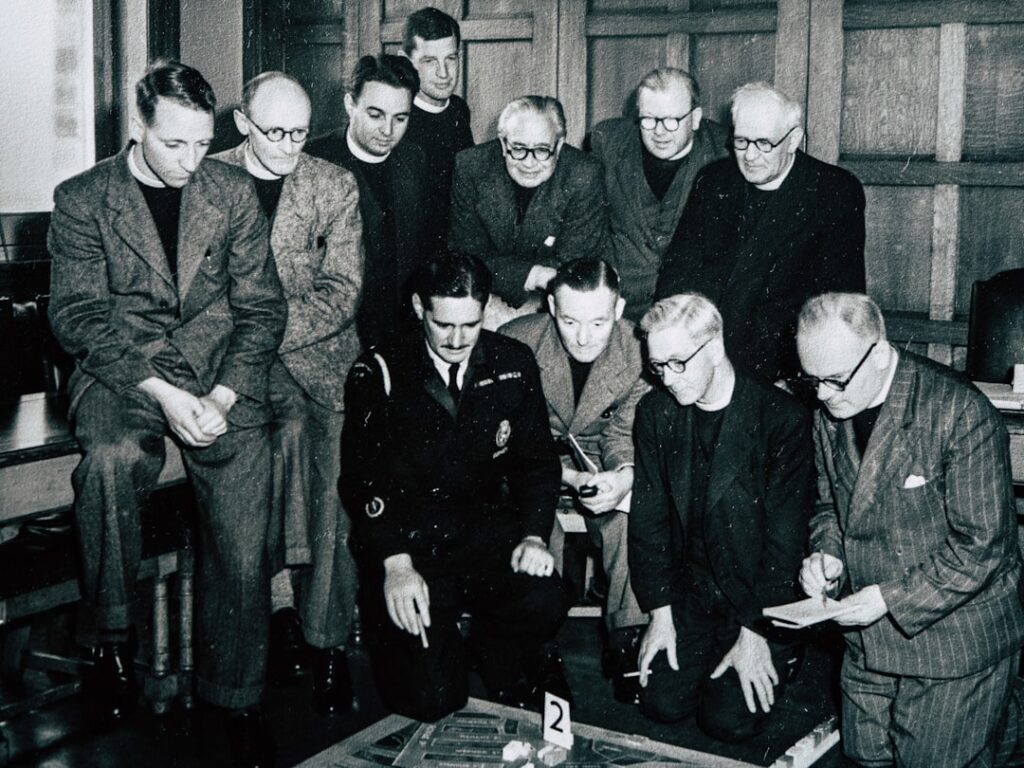
Probation is a form of post-conviction supervision that allows individuals convicted of a crime to serve their sentence in the community, rather than in jail or prison. It is an alternative to incarceration that aims to rehabilitate offenders and reintegrate them into society. Probation provides individuals with the opportunity to demonstrate their ability to abide by the law and make positive changes in their lives. This article will explore the various aspects of probation, including how it works, the role of probation officers, different types of probation, the conditions of probation, consequences of probation violations, benefits of successful completion of probation, common challenges faced by probationers, and available resources to help them succeed.
Key Takeaways
- Probation is a court-ordered period of supervision for individuals who have been convicted of a crime.
- Probation officers play a crucial role in monitoring and supporting probationers during their supervision period.
- There are two types of probation: community and supervised, with varying levels of supervision and restrictions.
- Probation conditions can include drug testing, community service, and restrictions on travel and association.
- Violating probation conditions can result in consequences such as revocation of probation and imprisonment.
What is Probation and How Does it Work?
Probation is a court-ordered sentence that allows individuals convicted of a crime to remain in the community under the supervision of a probation officer, instead of being incarcerated. It is typically granted to first-time offenders or those convicted of non-violent crimes. The purpose of probation is to provide an opportunity for rehabilitation and reintegration into society, while also ensuring public safety.
When an individual is placed on probation, they are required to comply with certain conditions set by the court. These conditions may include regular check-ins with a probation officer, drug testing, attending counseling or treatment programs, maintaining employment or education, and refraining from criminal activity. The length of probation can vary depending on the severity of the offense and the individual’s progress in meeting the conditions.
The Role of Probation Officers in Post-Conviction Supervision
Probation officers play a crucial role in post-conviction supervision. They are responsible for monitoring and supporting individuals on probation to ensure compliance with court-ordered conditions and promote successful rehabilitation. Some of the duties of probation officers include conducting regular meetings with probationers, assessing their progress, providing guidance and support, connecting them with community resources, and reporting any violations or concerns to the court.
Effective communication between probation officers and probationers is essential for successful supervision. Probation officers must establish a rapport with their clients, build trust, and maintain open lines of communication. This allows them to better understand the individual’s needs, challenges, and progress, and provide appropriate guidance and support. Regular check-ins and meetings with probation officers also serve as an opportunity for probationers to address any concerns or seek assistance.
Probation officers monitor compliance with probation conditions through various means. They may conduct home visits, drug tests, or employment checks to ensure that individuals are abiding by the terms of their probation. They may also collaborate with other agencies, such as treatment providers or employers, to gather information and assess progress. If a probation violation is suspected or confirmed, the probation officer will report it to the court, which may result in consequences for the probationer.
Types of Probation: Community and Supervised
There are two main types of probation: community probation and supervised probation. Community probation is the most common form of probation and involves regular check-ins with a probation officer, compliance with court-ordered conditions, and monitoring of progress. It allows individuals to serve their sentence in the community while receiving support and supervision.
Supervised probation, on the other hand, is a more intensive form of probation that involves closer monitoring and stricter conditions. It is typically reserved for individuals who require more supervision due to the nature of their offense or their history of non-compliance. Supervised probation may involve more frequent check-ins with a probation officer, mandatory participation in treatment programs or counseling, electronic monitoring, or curfews.
The main difference between community and supervised probation lies in the level of supervision and the intensity of conditions. While both types aim to promote rehabilitation and reintegration into society, supervised probation provides a higher level of oversight for individuals who require additional support.
The Conditions of Probation: What You Need to Know
When an individual is placed on probation, they are required to comply with certain conditions set by the court. These conditions are designed to address the specific needs and risks of the individual, as well as promote rehabilitation and public safety. Common probation conditions may include:
1. Regular check-ins with a probation officer: Individuals on probation are typically required to meet with their probation officer on a regular basis. These meetings serve as an opportunity for the probation officer to assess progress, address any concerns, and provide guidance and support.
2. Drug testing: Many individuals on probation are required to undergo regular drug testing to ensure they are abstaining from illegal substances. This condition is particularly common for individuals with a history of substance abuse or drug-related offenses.
3. Attendance at counseling or treatment programs: Depending on the individual’s needs, they may be required to attend counseling or treatment programs, such as anger management classes, substance abuse treatment, or mental health therapy.
4. Employment or education: Maintaining employment or pursuing education is often a condition of probation. This condition aims to promote stability and accountability in the individual’s life.
5. Curfews or travel restrictions: In some cases, individuals on probation may be subject to curfews or travel restrictions. These conditions are imposed to ensure that individuals remain in the community and do not engage in criminal activity.
The specific conditions of probation can vary depending on the individual’s offense, history, and needs. It is important for individuals on probation to fully understand and comply with these conditions to avoid potential consequences.
Understanding Probation Violations and the Consequences

A probation violation occurs when an individual fails to comply with one or more of the conditions of their probation. This can include anything from missing a meeting with a probation officer, testing positive for drugs, committing a new offense, or failing to complete required counseling or treatment programs.
Examples of probation violations can vary depending on the specific conditions set by the court. Some common examples include:
1. Failure to report to a probation officer: Regular check-ins with a probation officer are a common condition of probation. Failing to report to a scheduled meeting or failing to notify the probation officer of a change in address or employment can be considered a violation.
2. Positive drug test: If an individual on probation is required to undergo regular drug testing and tests positive for illegal substances, it is considered a violation of their probation.
3. Committing a new offense: Engaging in criminal activity while on probation is a clear violation. This can include anything from minor offenses, such as traffic violations, to more serious crimes.
4. Failure to complete required programs: If an individual is required to attend counseling or treatment programs as part of their probation and fails to do so, it is considered a violation.
The consequences of probation violations can vary depending on the severity of the violation and the individual’s history. Some potential consequences may include:
1. Warning or increased supervision: For minor violations, the probation officer may issue a warning or increase supervision to ensure compliance.
2. Modification of conditions: In some cases, the court may modify the conditions of probation if it is determined that they are not appropriate or effective.
3. Revocation of probation: If the violation is serious or repeated, the court may choose to revoke probation and impose a more severe sentence, such as incarceration.
It is important for individuals on probation to understand the potential consequences of violating their probation and take their conditions seriously.
The Importance of Compliance with Probation Conditions
Complying with the conditions of probation is crucial for individuals on probation. It not only ensures their successful completion of probation but also has several other benefits.
1. Avoidance of incarceration: One of the main benefits of complying with probation conditions is avoiding incarceration. By abiding by the terms of their probation, individuals can serve their sentence in the community and avoid being sent to jail or prison.
2. Restoration of civil rights: Successful completion of probation can lead to the restoration of certain civil rights, such as the right to vote or own firearms. This can have a significant impact on an individual’s life and opportunities.
3. Improved employment and housing opportunities: Having a successful probation record can improve an individual’s chances of finding employment and securing stable housing. Many employers and landlords conduct background checks, and a clean probation record can make a positive impression.
Compliance with probation conditions also demonstrates an individual’s commitment to rehabilitation and positive change. It shows that they are taking responsibility for their actions and are willing to make the necessary changes to lead a law-abiding life.
The Benefits of Successful Completion of Probation
Successful completion of probation can have several benefits for individuals who have been convicted of a crime. These benefits extend beyond the avoidance of incarceration and can significantly impact an individual’s life and future opportunities.
1. Restoration of civil rights: As mentioned earlier, successful completion of probation can lead to the restoration of certain civil rights, such as the right to vote or own firearms. This can have a profound impact on an individual’s sense of citizenship and participation in society.
2. Improved employment prospects: Having a successful probation record can improve an individual’s chances of finding employment. Many employers conduct background checks, and a clean probation record can make a positive impression. It demonstrates that the individual has taken steps towards rehabilitation and is committed to making positive changes in their life.
3. Enhanced housing options: A successful probation record can also improve an individual’s chances of securing stable housing. Many landlords conduct background checks, and having a clean probation record can make it easier to find suitable housing.
4. Personal growth and development: Successfully completing probation requires individuals to address their underlying issues, such as substance abuse or anger management. Through counseling, treatment programs, and support from probation officers, individuals can develop the necessary skills and tools to lead a law-abiding and productive life.
Successful completion of probation is not only beneficial for the individual but also for society as a whole. It demonstrates that rehabilitation is possible and that individuals can make positive changes in their lives.
Common Challenges Faced by Probationers and How to Overcome Them
Probationers often face various challenges that can hinder their progress and compliance with probation conditions. Some common challenges include substance abuse, mental health issues, and lack of a support system. However, there are resources available to help probationers overcome these challenges and succeed in their rehabilitation journey.
1. Substance abuse: Many individuals on probation struggle with substance abuse issues. It is important for them to seek treatment and support to address these underlying issues. Probation officers can connect individuals with appropriate treatment programs or counseling services to help them overcome their addiction.
2. Mental health issues: Individuals with mental health issues may find it challenging to comply with probation conditions. It is crucial for them to seek appropriate mental health treatment and support. Probation officers can assist in connecting individuals with mental health resources and ensuring they receive the necessary care.
3. Lack of support system: Having a strong support system is crucial for individuals on probation. Family, friends, or mentors can provide guidance, encouragement, and accountability. If an individual lacks a support system, probation officers can help connect them with community resources or support groups.
There are also various resources available in the community to help probationers overcome these challenges. Treatment programs, counseling services, support groups, and vocational training programs can provide the necessary support and tools for individuals to successfully complete their probation.
The Impact of Probation on Employment, Housing, and Personal Relationships
Probation can have a significant impact on various aspects of an individual’s life, including employment, housing, and personal relationships.
1. Employment opportunities: Having a criminal record, even with probation, can make it more challenging to find employment. Many employers conduct background checks, and a criminal record can be a barrier to securing a job. However, successful completion of probation can improve an individual’s chances of finding employment. It demonstrates their commitment to rehabilitation and positive change.
2. Housing options: Similar to employment, having a criminal record can also impact an individual’s housing options. Many landlords conduct background checks, and a criminal record can make it more difficult to secure stable housing. However, successful completion of probation can improve an individual’s chances of finding suitable housing.
3. Personal relationships: Probation can also impact personal relationships. The conditions of probation, such as curfews or travel restrictions, may limit an individual’s ability to spend time with family or friends. Additionally, the stigma associated with a criminal record can strain relationships. However, successful completion of probation can help rebuild trust and strengthen personal relationships.
It is important for individuals on probation to be aware of these potential impacts and take proactive steps to address them. Seeking employment assistance, exploring housing options that are more lenient towards individuals with criminal records, and maintaining open communication with loved ones can help mitigate these challenges.
Resources Available to Help Probationers Succeed
Probationers have access to various resources that can help them succeed in their rehabilitation journey. These resources include support from probation officers, community resources, counseling services, and treatment programs.
1. Probation officer support: Probation officers play a crucial role in supporting individuals on probation. They provide guidance, accountability, and connect individuals with appropriate resources in the community. Regular check-ins with probation officers serve as an opportunity for individuals to address any concerns or seek assistance.
2. Community resources: There are numerous community resources available to help probationers succeed. These resources may include vocational training programs, educational opportunities, support groups, and mentoring programs. Probation officers can provide information and referrals to these resources based on the individual’s needs and goals.
3. Counseling and treatment programs: Many individuals on probation benefit from counseling or treatment programs to address underlying issues, such as substance abuse or mental health. Probation officers can connect individuals with appropriate counseling services or treatment programs to help them overcome these challenges.
It is important for individuals on probation to take advantage of these resources and seek help and support when needed. Utilizing these resources can greatly increase the chances of successful completion of probation and long-term rehabilitation.
Probation is a form of post-conviction supervision that allows individuals convicted of a crime to serve their sentence in the community. It aims to rehabilitate offenders, promote reintegration into society, and ensure public safety. Probation officers play a crucial role in post-conviction supervision by monitoring compliance with probation conditions, providing guidance and support, and connecting individuals with community resources.
There are different types of probation, including community probation and supervised probation, each with varying levels of supervision and conditions. Compliance with probation conditions is crucial for successful completion of probation and can lead to various benefits, such as restoration of civil rights, avoidance of incarceration, improved employment prospects, and enhanced housing options.
Probationers often face challenges such as substance abuse, mental health issues, or lack of a support system. However, there are resources available to help them overcome these challenges and succeed in their rehabilitation journey. It is important for individuals on probation to take advantage of these resources and actively engage in their own recovery. One such resource is counseling or therapy, which can provide probationers with a safe space to address their underlying issues and develop coping mechanisms. Additionally, support groups and peer mentoring programs can offer a sense of community and understanding, allowing probationers to connect with others who have faced similar challenges. Vocational training and educational programs can also be beneficial, as they provide probationers with the skills and knowledge necessary to secure stable employment and reintegrate into society. Finally, probation officers play a crucial role in providing guidance, monitoring progress, and connecting probationers with the appropriate resources. By actively participating in these resources and taking responsibility for their own rehabilitation, probationers can increase their chances of successfully completing their probationary period and leading a productive, law-abiding life.
If you’re interested in learning more about probation and its impact on individuals and communities, I highly recommend checking out this insightful article from Ashes to Assets. It delves into the various aspects of probation, including its purpose, effectiveness, and potential alternatives. Discover how probation can serve as a valuable tool for rehabilitation and reintegration by clicking here.
FAQs
What is probation?
Probation is a legal status given to a person who has been convicted of a crime but is allowed to remain in the community under the supervision of a probation officer instead of being sent to jail or prison.
How does probation work?
Probation typically involves a set of conditions that the offender must follow, such as regularly reporting to a probation officer, attending counseling or treatment programs, and refraining from criminal activity. The probation officer monitors the offender’s compliance with these conditions and reports any violations to the court.
Who is eligible for probation?
Eligibility for probation varies depending on the jurisdiction and the nature of the crime. Generally, first-time offenders and those convicted of non-violent crimes are more likely to be eligible for probation.
What are the benefits of probation?
Probation allows offenders to remain in the community and maintain employment and family relationships. It can also be less expensive than incarceration and may provide opportunities for rehabilitation and treatment.
What are the consequences of violating probation?
Violating probation can result in a range of consequences, including revocation of probation, fines, community service, and even incarceration. The severity of the consequences depends on the nature and frequency of the violations.


